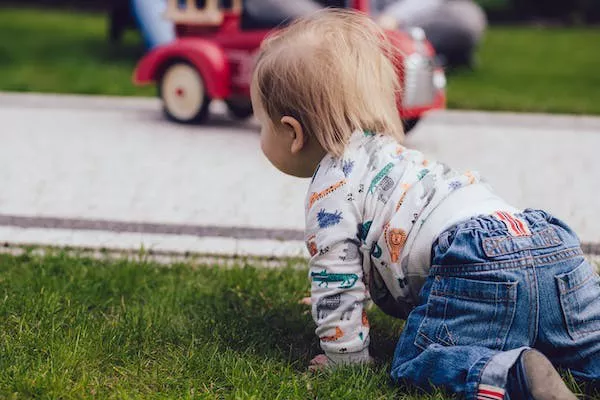As parents, we often find ourselves eagerly anticipating each milestone in our baby’s life. One of these exciting moments is when our little ones start taking their first steps. Naturally, this leads us to wonder when we should begin buying baby shoes. While it’s tempting to rush out and purchase those adorable miniature sneakers, it’s essential to consider your child’s developmental needs and foot health. In this article, we will explore the factors to consider when determining the right time to buy baby shoes, ensuring your child’s feet are well-protected during this critical stage of their growth.
The Importance of Early Foot Development
Babies are born with incredibly soft and malleable bones in their feet. As they begin to stand and walk, these bones gradually harden and take shape. The early stages of foot development play a crucial role in forming the foundation for healthy walking and posture throughout their lives. Therefore, it is essential to prioritize the health of their developing feet and allow them to develop naturally.
Signs of Readiness for Baby Shoes
Every child’s development is unique, and there is no one-size-fits-all answer to when you should start buying baby shoes. However, some indicators may suggest your child is ready for their first pair of shoes:
Standing Independently: Once your baby starts pulling themselves up and standing independently, they may begin exploring walking with support. This is a signal that their foot muscles are becoming stronger, preparing them for the next milestone.
Cruising and Walking with Support: When your baby starts cruising along furniture or taking a few steps while holding your hand, it’s a sign they are gaining confidence and stability.
Stepping Unassisted: The exciting moment when your baby takes their first independent steps signifies they are ready for outdoor walking and need proper shoe protection.
The Right Time to Introduce Shoes
While the above indicators help gauge your child’s readiness for shoes, it’s crucial to remember that being barefoot is essential for foot development. Allow your baby plenty of time to crawl, stand, and walk barefoot on safe and clean surfaces. This enables their feet to grow and muscles to strengthen naturally.
It is generally recommended to introduce shoes only when your baby starts walking confidently outdoors and in more challenging environments. This is usually around 12 to 18 months of age, but it can vary depending on each child’s individual progress.
Choosing the Right Baby Shoes
When the time comes to purchase your baby’s first shoes, make informed choices to ensure their feet stay healthy and happy:
Proper Fit: Baby shoes should fit well, allowing enough room for growth and foot movement. Avoid buying shoes that are too tight or too loose.
Flexible Soles: Opt for shoes with flexible, non-restrictive soles, as this supports your baby’s natural foot movement and muscle development.
Lightweight and Breathable: Look for lightweight and breathable materials to prevent discomfort and keep their feet cool.
Ankle Support: While flexibility is essential, some ankle support can provide stability and protect against potential injuries.
Velcro or Elastic Closure: Shoes with adjustable velcro or elastic closures make it easier to put on and take off.
Quality Materials: Choose shoes made from high-quality, non-toxic materials to promote healthy foot growth and avoid potential allergies.
Baby Shoe Sizing
Proper shoe sizing is crucial for your baby’s comfort and foot health. Remember that their feet grow rapidly, so frequent size checks are necessary. Consider the following tips when determining the right shoe size:
Measure Regularly: Measure your baby’s feet every few weeks to ensure they are wearing the correct size.
Account for Growth: Leave a thumb’s width of space between the longest toe and the front of the shoe to accommodate growth.
Check Both Feet: It’s common for babies to have slightly different-sized feet, so measure both and choose shoes that fit the larger foot comfortably.
Tips for Baby’s Foot Health
Ensuring your baby’s feet remain healthy goes beyond choosing the right shoes:
Daily Foot Checks: Examine your baby’s feet regularly for any signs of irritation, redness, or blisters.
Socks Matter: When not barefoot, opt for soft, breathable socks that allow air circulation.
Safe Playgrounds: Choose safe and clean environments for your baby to play and walk barefoot.
Limit Shoe Usage: Avoid keeping shoes on for extended periods, especially when indoors, to give their feet more time to develop naturally.
Conclusion
When it comes to buying baby shoes, timing and proper shoe selection are crucial to your child’s foot development. Allow your baby to explore their world barefoot during their initial stages of development, and introduce shoes only when they start walking confidently outdoors. Prioritize their comfort and foot health by choosing shoes that provide a perfect fit, flexibility, and support. By paying attention to these factors, you can set your little one on the path to a lifetime of healthy foot development and confident walking.


